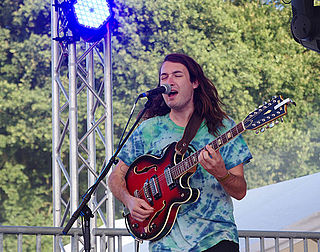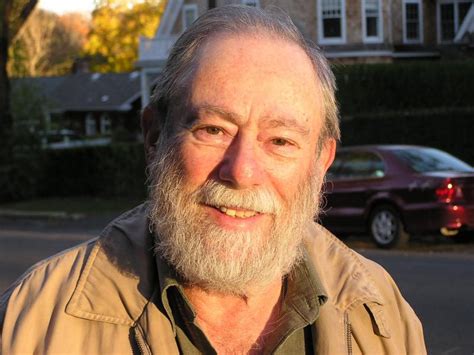A Quote by Jay Parini
As 'Possession' progresses, it seems less and less like the usual satire about academia and more like something by Jorge Luis Borges.
Related Quotes
I was an eccentric teenager in suburban New Jersey, in a town mostly interested in sports, popularity, and clothes. A fan of Jorge Luis Borges, I found a group of Borges scholars from Aarhus, Denmark - perfect strangers - whom I connected to online and immediately became enthralled by the idea of virtual communities.
I first got online in the late '80s when I was an eccentric teenager in suburban New Jersey, in a town mostly interested in sports, popularity, and clothes. I was a reader, into Jorge Luis Borges, and I found, connected to, and delighted in a group of Borges scholars from Aarhus, Denmark, that I met online.
There [DreamTigers by Jorge Luis Borges] were these little fablesque things, you know, dream tigers, beautiful, beautiful pieces that when you read them had the power of a long piece, but they were prose, and they had the power of poetry, in that the last line wasn't the end, it was a reverberation, like when you tap on a glass made of crystal, and it goes ping.
Jorge Luis Borges wrote a poem when he was in his 80s about one day writing the book that would justify him. This was long after he had become one of the great masters, a writer everyone looks up to and reveres. As artists, I don't think we ever see ourselves as done. We always think we're at the beginning . . .
Since becoming a mother, I'd say it's more so affected my general outlook on things. I'm less worried about everything. Less scared to make those numbers that people think are standard or less scared to create something that maybe I don't think people are going to like, because it's all about if I like it. I need to be happy.
Jorge Luis Borges was lamenting a variety of Orientalism that was used to measure the alleged authenticity of Argentine and Latin American writers in the midcentury. The Argentine literary tradition was believed by many, including many Argentines, to be concerned with a national imaginary in which the gauchos and the pampas and the tango were fundamental tropes. Borges, in part to legitimize his own Europhilia, correctly pointed out that expecting writers to engage with these romantic nationalist tropes was arbitrary and limiting, a genre that was demonstrative of its own artificiality.
Jorge Luis Borges had the soapbox and the authority to complain about this myopic understanding of the duty of Latin American writers, which sometimes forecloses their unique modernism and experience of modernization in favor of a mythic past or an artificially constructed ideal national subject. So likewise in João Gilberto Noll, readers shouldn't expect samba and Carnival and football. The Brazilian national identity is not one of his primary concerns.



































